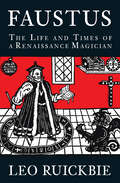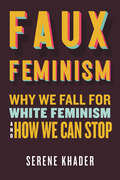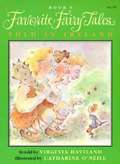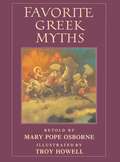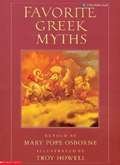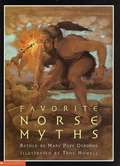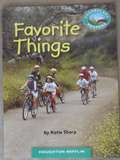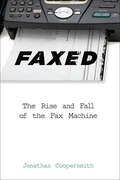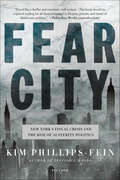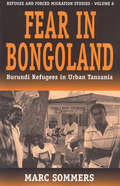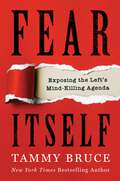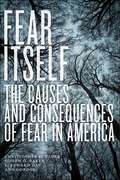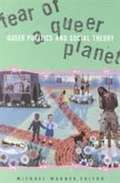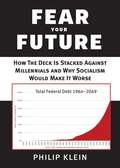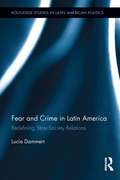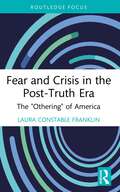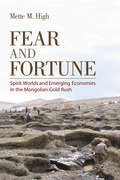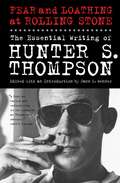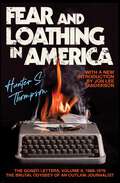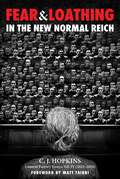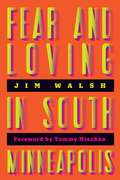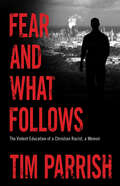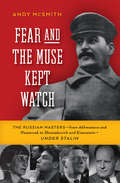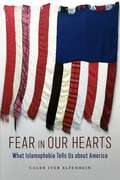- Table View
- List View
Faustus: The Life and Times of a Renaissance Magician
by Leo RuickbieFive hundred years ago the legend was born of a man who sold his soul to the Devil for power, wealth and women. It is a legend that has inspired genius and still inspires high art and popular culture alike. Around the world there are hundreds of nightly performances of Geothe's Faust, as well as actual attempts at soul-selling on eBay. Faustus has rightly been described as an 'icon of modern culture'. But in 500 years no one has written his biography - until now. 'Faustus' is the real story behind the legend. It is the story of a sixteenth-century scandal, of a man who claimed mastery of the forbidden magical arts and dared to rival the miracles attributed to Jesus. he evoked uproar and was accused of heinous crimes. But Faustus was not a charlatan; nor was he in league with the Devil. To find the real Faustus is to find the true history of his age, and Leo Ruickbe expertly takes the reader on a tour of war-torn Italy, Reformation Wittenberg and the magnificence of Charles V's court. The life of the legend becomes as real as any living person.
Faux Feminism: Why We Fall for White Feminism and How We Can Stop
by Serene KhaderFor readers of Hood Feminism and Against White FeminismAn incisive examination of why the pillars of feminism have eroded—and how all women, not just the #girlbosses, can rebuild themAfter over 175 years, the feminist movement, now in its fourth wave, is at risk of collapsing on its eroding foundation. In Faux Feminism, political philosopher Serene Khader advocates for another feminism—one that doesn&’t overwhelmingly serve white, affluent #girlbosses. With empathy, passion, and wit, Khader invites the reader to join her as she excavates the movement&’s history and draws a blueprint for a more inclusive and resilient future.A feminist myth buster, Khader begins by deconstructing &“faux feminisms.&” Thought to be the pillars of good feminism, they may appeal to many but, in truth, leave most women behind. Khader identifies these traps that white feminism lays for us all, asking readers to think critically about –The Freedom Myth: The overarching misconception that feminism is about personal freedom rather than collective equality–The Individualism Myth: The pervasive idea that feminism aims to free individual women from social expectations–The Culture Myth: The harmful misconception that &“other&” cultures restrict women&’s liberation–The Restriction Myth: The flawed belief that feminism is a fight against social restrictions–The Judgment Myth: The fallacy of celebrating women&’s choices without first interrogating the privileges afforded or denied to the womenIn later chapters, Khader draws on global and intersectional feminist lessons of the past and present to imagine feminism&’s future. She pays particular attention to women of color, especially those in the Global South. Khader recounts their cultural and political stories of building a more inclusive framework in their societies. These are the women, she argues, from whom today&’s feminists can learn.Khader&’s critical inquiry begets a new vision of feminism: one that tackles inequality at the societal, not individual, level and is ultimately rooted in community.
Favorite Fairy Tales Told in Ireland (Favorite Fairy Tales Book #5)
by Virginia Haviland[From the back cover:] "Funny, delightful stories you can read all by yourself! Poor Billy Beg. His wicked stepmother is trying to have him killed. Lucky Eileen. With the help of three kind fairies she marries the man she loves. Clever Leprechaun. He'll never reveal the secret of his pot of gold. . . . Meet these and other brave and winsome folks in this lively collection of tales from traditional Irish sources." If you like fairy tales you'll love the many other fairy tale books in the Bookshare collection. Look for other books in this series of sixteen books including, Favorite Fairy Tales from Czechoslovakia, Denmark, England, India, France, Italy Germany, Greece, Japan, Scotland, Norway, Poland, Sweden, Spain, and Russia. ,
Favorite Greek Myths
by Mary Pope OsborneRetells twelve tales from Greek mythology, including the stories of King Midas, Echo and Narcissus, the Golden Apples, and Cupid and Psyche.
Favorite Norse Myths
by Mary Pope OsborneA collection of rarely retold tales from the "Elder Edda" and the "Younger Edda", two six-hundred-year-old Norse manuscripts.
Faxed: The Rise and Fall of the Fax Machine (Johns Hopkins Studies in the History of Technology)
by Jonathan CoopersmithThe intriguing story of the rise and fall—and unexpected persistence—of the fax machine illustrates the close link between technology and culture.Co-Winner of the Hagley Prize in Business History of the Business History ConferenceFaxed is the first history of the facsimile machine—the most famous recent example of a tool made obsolete by relentless technological innovation. Jonathan Coopersmith recounts the multigenerational, multinational history of the device from its origins to its workplace glory days, in the process revealing how it helped create the accelerated communications, information flow, and vibrant visual culture that characterize our contemporary world.Most people assume that the fax machine originated in the computer and electronics revolution of the late twentieth century, but it was actually invented in 1843. Almost 150 years passed between the fax’s invention in England and its widespread adoption in tech-savvy Japan, where it still enjoys a surprising popularity. Over and over again, faxing’s promise to deliver messages instantaneously paled before easier, less expensive modes of communication: first telegraphy, then radio and television, and finally digitalization in the form of email, the World Wide Web, and cell phones. By 2010, faxing had largely disappeared, having fallen victim to the same technological and economic processes that had created it. Based on archival research and interviews spanning two centuries and three continents, Coopersmith’s book recovers the lost history of a once-ubiquitous technology. Written in accessible language that should appeal to engineers and policymakers as well as historians, Faxed explores themes of technology push and market pull, user-based innovation, and "blackboxing" (the packaging of complex skills and technologies into packages designed for novices) while revealing the inventions inspired by the fax, how the demand for fax machines eventually caught up with their availability, and why subsequent shifts in user preferences rendered them mostly passé.
Fear City: New York's Fiscal Crisis and the Rise of Austerity Politics
by Kim Phillips-FeinPULITZER PRIZE FINALISTAn epic, riveting history of New York City on the edge of disaster—and an anatomy of the austerity politics that continue to shape the world todayWhen the news broke in 1975 that New York City was on the brink of fiscal collapse, few believed it was possible. How could the country’s largest metropolis fail? How could the capital of the financial world go bankrupt? Yet the city was indeed billions of dollars in the red, with no way to pay back its debts. Bankers and politicians alike seized upon the situation as evidence that social liberalism, which New York famously exemplified, was unworkable. The city had to slash services, freeze wages, and fire thousands of workers, they insisted, or financial apocalypse would ensue.In this vivid account, historian Kim Phillips-Fein tells the remarkable story of the crisis that engulfed the city. With unions and ordinary citizens refusing to accept retrenchment, the budget crunch became a struggle over the soul of New York, pitting fundamentally opposing visions of the city against each other. Drawing on never-before-used archival sources and interviews with key players in the crisis, Fear City shows how the brush with bankruptcy permanently transformed New York—and reshaped ideas about government across America.At once a sweeping history of some of the most tumultuous times in New York's past, a gripping narrative of last-minute machinations and backroom deals, and an origin story of the politics of austerity, Fear City is essential reading for anyone seeking to understand the resurgent fiscal conservatism of today.
Fear In Bongoland
by Marc SommersSpurred by wars and a drive to urbanize, Africans are crossing borders and overwhelming cities in unprecedented numbers. At the center of this development are young refugee men who migrate to urban areas. This volume, the first full-length study of urban refugees in hiding, tells the story of Burundi refugee youth who escaped from remote camps in central Tanzania to work in one of Africa's fastest-growing cities, Dar es Salaam. This steamy, rundown capital would seem uninviting to many, particularly for second generation survivors of genocide whose lives are ridden with fear. But these young men nonetheless join migrants in "Bongoland" (meaning "Brainland") where, as the nickname suggests, only the shrewdest and most cunning can survive. Mixing lyrics from church hymns and street vernacular, descriptions of city living in cartoons and popular novels and original photographs, this book creates an ethnographic portrait of urban refugee life, where survival strategies spring from street smarts and pastors' warnings of urban sin, and mastery of popular youth culture is highly valued. Pentecostalism and a secret rift within the seemingly impenetrable Hutu ethnic group are part of the rich texture of this contemporary African story. Written in accessible prose, this book offers an intimate picture of how Africa is changing and how refugee youth are helping to drive that change.
Fear Itself: Exposing the Left's Mind-Killing Agenda
by Tammy BruceAs progressive policies get more extreme—and challenging them becomes more dangerous—the left expects us to submit to the madness.“Leave this to your betters,” they tell us, as the left and our bureaucratic state refine the weaponizing of fear, gaslighting us into a new normal of chronic dread and anxiety with one goal in mind: unprecedented government control over our lives.COVID, climate change, systemic racism, terrorist parents, identity politics, vandalizing language, cancel culture—from vague designer threats to an endless array of arbitrary rules, the left’s scam to kill our minds follows a predictable pattern:• Cut us off from our friends and family• Gaslight us• Tell us we misremember the past• Break down our confidence• Shame us• Fill us with a fear of everythingIt's time to turn the tables and end this abusive manipulation once and for all. And former liberal activist and Fox News contributor Tammy Bruce shows how. In Fear Itself, you’ll see that none of this is normal nor is it organic. And, most important, you’ll see that it can be defeated. Overcoming the weaponization of fear first requires recognizing it. Once we’re no longer in the dark, defeating it becomes second nature as we take back control of our lives and the destiny of our country.
Fear Itself: The Causes and Consequences of Fear in America
by Joseph O. Baker Christopher D. Bader L. Edward Day Ann GordonAn antidote to the culture of fear that dominates modern lifeFrom moral panics about immigration and gun control to anxiety about terrorism and natural disasters, Americans live in a culture of fear. While fear is typically discussed in emotional or poetic terms—as the opposite of courage, or as an obstacle to be overcome—it nevertheless has very real consequences in everyday life. Persistent fear negatively effects individuals’ decision-making abilities and causes anxiety, depression, and poor physical health. Further, fear harms communities and society by corroding social trust and civic engagement. Yet politicians often effectively leverage fears to garner votes and companies routinely market unnecessary products that promise protection from imagined or exaggerated harms.Drawing on five years of data from the Chapman Survey of American Fears—which canvasses a random, national sample of adults about a broad range of fears—Fear Itself offers new insights into what people are afraid of and how fear affects their lives. The authors also draw on participant observation with Doomsday preppers and conspiracy theorists to provide fascinating narratives about subcultures of fear.Fear Itself is a novel, wide-ranging study of the social consequences of fear, ultimately suggesting that there is good reason to be afraid of fear itself.
Fear Of A Queer Planet: Queer Politics And Social Theory (Cultural Politics #6)
by Michael WarnerIn recent years, lesbians and gay men have developed a new, aggressive style of politics. At the same time, innovative intellectual energies have made queer theory an explosive field of study. In "Fear of a Queer Planet", Michael Warner draws on emerging new queer politics, and shows how queer activists have come to challenge basic assumptions about the social and political world. <p><p> Existing traditions of theory - Marxism, cultural studies, psychoanalysis, anthropology, legal theory, nationalism, and antinationalism - have too often presupposed a heterosexual society, as the essays in this volume demonstrate. "Fear of a Queer Planet" suggests a new agenda for social theory. It moves beyond the idea that lesbians and gay men share a minority identity and special interests and that their issues can be subordinated to more general social conflicts. Instead, Warner and the other contributors to this volume show that queer sexualities take many forms, are the subject of many kinds of conflict and struggles, and must be taken as a starting point in thinking about cultural politics. <p> This collection explores the impact of ACT UP, Queer Nation, multiculturalism, the new religious right, outing, queerness, postmodernism, and other shifts in the politics of sexuality. The authors featured speak from different backgrounds of gender, race, nationality, and discipline. Together, they show how struggles over sexuality have profound implications for progressive politics, social theory, and cultural studies.
Fear Your Future: How The Deck Is Stacked Against Millennnials And Why Socialism Would Mke It Worse (New Threats To Freedom)
by Philip KleinIt’s become fashionable to demean millennials as the “snowflake” generation. Raised during the peace and prosperity of the ‘90s, they’re often perceived as carrying an entitlement mentality and of being incapable of handling adversity. But Philip Klein sees them differently. Given the economic headwinds they faced at the start of their working lives, millennials have shown commendable fortitude. And as Klein argues, they will need to maintain this character strength going forward because further challenges loom in their future. The aftershocks of the Great Recession, the skyrocketing cost of living, and the titanic weight of student loan debt have made the American Dream seem to be forever retreating toward the horizon. As if that weren’t enough, millennials will face the largest federal debt in history as boomers retire and extract trillions of dollars from Social Security and Medicare—far more than they contributed. Now politicians clamoring for the millennial vote in 2020 are making overtures toward socialism, and millennials are responding positively—understandably so, considering how the economic cards are stacked against them. But, as Philip Klein shows, the reality is that such policies would only make their burden infinitely heavier. In this concise, data-driven book, Klein begins the work of brightening the future for millennials by analyzing the problem compassionately yet objectively. There are real reasons to worry about what lies ahead if nothing changes. But the facts laid out in Klein’s book can steer the conversation to realistic solutions.
Fear and Crime in Latin America: Redefining State-Society Relations (Routledge Studies in Latin American Politics)
by Lucía DammertThe feeling of insecurity is a little known phenomenon that has been only partially explored by social sciences. However, it has a deep social, cultural and economic impact and may even contribute to define the very structures of the state. In Latin America, fear of crime has become an important stumbling block in the region’s process of democratization. After long spells of dictatorships and civil wars, violence in the region was supposed to be under control yet crime rates have continued to skyrocket and citizens remain fearful. This analytical puzzle has troubled researchers and to date there is no publication which explores this problem. Based on a wealth of cutting edge qualitative and quantitative research, Lucía Dammert proposes a unique theoretical perspective which includes a sociological, criminological and political analysis to understand fear of crime. She describes its linkages to issues such as urban segregation, social attitudes, institutional trust, public policies and authoritarian discourses in Chile’s recent past. Looking beyond Chile, Dammert also includes a regional comparative perspective allowing readers to understand the complex elements underpinning this situation. Fear and Crime in Latin America challenges many assumptions and opens an opportunity to discuss an issue that affects everyone with key societal and personal costs. As crime rates increase and states become even more fragile, fear of crime as a social problem will continue to have an important impact in Latin America.
Fear and Crisis in the Post-Truth Era: The "Othering" of America (Routledge Focus on Communication Studies)
by Laura Constable FranklinThis book explores how political crisis talk, even false, can thread its way into the media and impact public opinion, legislation, and everyday lives.Grounded in theory and supported by data, it illustrates the powerful presence of the media in the public sphere and argues for a different approach toward the reiteration of misrepresentations and lies. Three case studies explore the strategic use of “othering” in the 21st century: The false depiction of Sharia and passage of anti-Sharia legislation in Tennessee; the anti-Muslim Congressional hearings sponsored by Rep. Peter King; and charges of Mexican criminality espoused by former President Donald Trump. A fourth case study illustrates the versatility of this mode of rhetoric through a thematic comparison of two nationalist speeches delivered years apart in vastly different settings. Findings suggest that many of the themes and tactics used in nationalist discourse remain startingly consistent. The reporting of false or overblown claims by the media often legitimized untruths, leading to additional repetition and exposure. Finally, it looks ahead, raising awareness of “othering” efforts with new minorities and the overall societal impact of demonization.For students and scholars exploring the tactics of nationalism and the power of mediatization, this book offers a dynamic, timely analysis of the effects that “othering” and false depictions have on innocent lives and the role that our most well-respected media outlets have played in the process.
Fear and Fortune: Spirit Worlds and Emerging Economies in the Mongolian Gold Rush
by Mette M. HighMongolia over the last decade has seen a substantial and ongoing gold rush. The widespread mining of gold looks at first glance to be a blessing for a desperately poor and largely pastoralist country where people's lives were disrupted by the end of the USSR and tens of millions of livestock were killed in devastating droughts in the early 2000s. Volatility and uncertainty as well as political and economic turmoil led many people to join the hopeful search for gold. This activity, born out of uncertain times, poses an intense moral problem; in the "land of dust," disturbing the ground and extracting the precious metal is widely believed to have calamitous consequences. With gold retaining strong ties to the landscape and its many spirit beings, the fortune of the precious metal is inseparable from the fears that surround mining. Tracing the continuities and discontinuities between human and nonhuman worlds, Mette M. High follows the paths of gold as it is excavated and converted into "polluted money," entering local shops and Buddhist monasteries, joining the illegal gold trade, and returning as "renewed" money for the "big bosses" of the gold mines.High has done several years of fieldwork in Mongolia, spending time with the "ninjas," as the miners are known locally, as well as the people who disapprove of their illegal activities and warn of the retribution that the land and its inhabitants may suffer as a result. This book is about radical change, or as many Mongolians put it, when life becomes "strange" and "chaotic." High has gained a deep understanding of the processes by which Mongolians square a morally questionable activity with the lure of profit. How do they involve themselves with tainted sources of money, and can it ever be cleansed and made usable? Addressing how our lives and those of others are intimately intertwined, Fear and Fortune offers an expansive and capacious approach to understanding the high stakes involved in human economic life.
Fear and Loathing at Rolling Stone: The Essential Writing of Hunter S. Thompson
by Hunter S. Thompson Jann WennerThe definitive collection of the king of gonzo journalism's finest work for ROLLING STONE. "Buy the ticket, take the ride," was a favorite slogan of Hunter S. Thompson, and it pretty much defined both his work and his life. Fear and Loathing at Rolling Stone showcases the roller-coaster of a career at the magazine that was his literary home. Jann S. Wenner, the outlaw journalist's friend and editor for nearly thirty-five years, has assembled articles that begin with Thompson's infamous run for sheriff of Aspen on the Freak Party ticket in 1970 and end with his final piece on the Bush-Kerry showdown of 2004. In between is Thompson's remarkable coverage of the 1972 presidential campaign--a miracle of journalism under pressure--and plenty of attention paid to Richard Nixon, his bête noire; encounters with Muhammad Ali, Bill Clinton, and the Super Bowl; and a lengthy excerpt from his acknowledged masterpiece, Fear and Loathing in Las Vegas. Woven throughout is selected correspondence between Wenner and Thompson, most of it never before published. It traces the evolution of a personal and professional relationship that helped redefine modern American journalism, and also presents Thompson through a new prism as he pursued his lifelong obsession: The life and death of the American Dream.
Fear and Loathing at Rolling Stone: The Essential Writing of Hunter S. Thompson
by Hunter S. Thompson Jann WennerFrom the bestselling author of The Rum Diary and king of "Gonzo" journalism Hunter S. Thompson, comes the definitive collection of the journalist's finest work from Rolling Stone. Fear and Loathing at Rolling Stone showcases the roller-coaster of a career at the magazine that was his literary home."Buy the ticket, take the ride," was a favorite slogan of Hunter S. Thompson, and it pretty much defined both his work and his life. Jann S. Wenner, the outlaw journalist's friend and editor for nearly thirty-five years, has assembled articles--and a wealth of never- before-seen correspondence and internal memos from Hunter's storied tenure at Rolling Stone--that begin with Thompson's infamous run for sheriff of Aspen on the Freak Party ticket in 1970 and end with his final piece on the Bush-Kerry showdown of 2004. In between is Thompson's remarkable coverage of the 1972 presidential campaign and plenty of attention paid to Richard Nixon; encounters with Muhammad Ali, Bill Clinton, and the Super Bowl; and a lengthy excerpt from his acknowledged masterpiece, Fear and Loathing in Las Vegas. The definitive volume of Hunter S. Thompson's work published in the magazine, Fear and Loathing at Rolling Stone traces the evolution of a personal and professional relationship that helped redefine modern American journalism, presenting Thompson through a new prism as he pursued his lifelong obsession: The life and death of the American Dream.
Fear and Loathing in America: The Brutal Odyssey of an Outlaw Journalist
by Hunter S. ThompsonFrom the king of &“Gonzo&” journalism and bestselling author who brought you Fear and Loathing in Las Vegas comes another astonishing volume of letters by Hunter S. Thompson, featuring a new introduction from award-winning author and staff writer at The New Yorker Jon Lee Anderson.Brazen, incisive, and outrageous as ever, this second volume of Thompson&’s private correspondence is the highly anticipated follow-up to The Proud Highway. When that first book of letters appeared in 1997, Time pronounced it "deliriously entertaining"; Rolling Stone called it "brilliant beyond description"; and The New York Times celebrated its "wicked humor and bracing political conviction." Spanning the years between 1968 and 1976, these never-before-published letters show Thompson building his legend: running for sheriff in Aspen, Colorado; creating the seminal road book Fear and Loathing in Las Vegas; twisting political reporting to new heights for Rolling Stone; and making sense of it all in the landmark Fear and Loathing on the Campaign Trail '72. To read Thompson's dispatches from these years—addressed to the author's friends, enemies, editors, and creditors, and such notables as Jimmy Carter, Tom Wolfe, and Kurt Vonnegut—is to read a raw, revolutionary eyewitness account of one of the most exciting and pivotal eras in American history.
Fear and Loathing in the New Normal Reich: Consent Factory Essays, Vol. IV (2022–2024)
by C. J. HopkinsA hilarious and horrifying journey into the dark heart of the ‟New Normal Reich.&” C. J. Hopkins&’s latest volume of Consent Factory Essays chronicles his Kafkaesque prosecution in Germany, the broader crackdown on dissent throughout the West, and other unsettling features of the ‟New Normal&”—the new pathologized form of totalitarianism that was rolled out during ‟the Covid Pandemic,&” which is radically transforming societies around the world. Charged by the German authorities with ‟disseminating pro-Nazi propaganda&” for tweeting the cover art of his bestselling book, The Rise of the New Normal Reich: Consent Factory Essays, Vol. III (2020–2021), Hopkins&’s absurdist adventures in the German legal system—where he was pronounced guilty without a trial, then acquitted, and then ‟unacquitted&”—make for harrowing and uproariously humorous reading. Prosecuted in criminal court, his book banned by Amazon, his tweets censored by Twitter, reported to Germany&’s Federal Criminal Police Office and the Bundesam für Verfassungsschutz, its domestic intelligence agency, his battle to defend his right to freedom of speech and artistic expression has become an international cause célèbre, receiving major media coverage in the USA, UK, Australia, and Switzerland, as well as Germany. Spanning the years 2022–2024, the essays in this volume also cover the crackdown on so-called ‟disinformation,&” ‟hate-speech,&” and other forms of wrongthink, the wars in the Middle East and Ukraine, the culture wars, the rise of the ‟Musk Cult,&” the return of Trump, and the rest of the aftermath of the ‟Covid Pandemic.&”
Fear and Loving in South Minneapolis
by Jim WalshA veteran Twin Cities journalist and raconteur summons the life of the city after reporting and recording its stories for more than thirty years Two or three times a week, as a columnist, hustling freelance writer, and genuinely curious reporter, Jim Walsh would hang out in a coffee shop or a bar, or wander in a club or on a side street, and invariably a story would unfold—one more chapter in the story of Minneapolis, the city that was his home and his beat for more than thirty years. Fear and Loving in South Minneapolis tells that story, collecting the encounters and adventures and lives that make a city hum—and make South Minneapolis what it is. Here is a man who drives around Minneapolis in a van that sports a neon sign and keeps a running tally of the soldiers killed in Iraq. Here is another, haunted by the woman he fell in love with, and lost, many years ago at the Minnesota Music Café on St. Paul&’s East Side. Here are strangers on a cold night on the corner of Forty-sixth and Nicollet, finding comfort in each other&’s company in the wake of the shootings in Paris. And here are Walsh&’s own memories catching up with him: the woman who joined him in representing &“junior royalty&” for the Minneapolis Aquatennial when they were both seven years old; the lost friend, Soul Asylum&’s Karl Mueller, recalled while sitting on his memorial bench at Walsh&’s go-to refuge, the Rose Gardens near Lake Harriet. These everyday interactions, ordinary people, and quiet moments in Jim Walsh&’s writing create an extraordinary picture of a city&’s life. James Joyce famously bragged that if Dublin were ever destroyed, it could be rebuilt in its entirety from his written works. The Minneapolis that Jim Walsh maps is more a matter of heart, of urban life built on human connections, than of streets intersecting and literal landmarks: it is that lived city, documented in measures large and small, that his book brings so vividly to mind, drafting a blueprint of a community&’s soul and inviting a reader into the boundless, enduring experience of Fear and Loving in South Minneapolis.
Fear and What Follows: The Violent Education of a Christian Racist, A Memoir (Willie Morris Books in Memoir and Biography)
by Tim ParrishFear and What Follows is a riveting, unflinching account of the author's spiral into racist violence during the latter years of desegregation in 1960s and 1970s Baton Rouge. About the memoir, author and editor Michael Griffith writes, “This might be a controversial book, in the best way—controversial because it speaks to real and intractable problems and speaks to them with rare bluntness.” The narrative of Parrish's descent into fear and irrational behavior begins with bigotry and apocalyptic thinking in his Southern Baptist church. Living a life upon this volatile foundation of prejudice and apprehension, Parrish feels destabilized by his brother going to Vietnam, his own puberty and restlessness, serious family illness, and economic uncertainty. Then a near-fatal street fight and subsequent stalking by an older sociopath fracture what security is left, leaving him terrified and seemingly helpless. Parrish comes to believe that he can only be safe by allying himself with brute force. This brute influence is a vicious, charismatic racist. Under this bigot's terrible sway, Parrish turns to violence in the street and at school. He is even conflicted about whether he will help commit murder in order to avenge a friend. At seventeen he must reckon with all of this as his parents and neighbors grow increasingly afraid that they are “losing” their neighborhood to African Americans. Fear and What Follows is an unparalleled story of the complex roots of southern, urban, working-class racism and white flight, as well as a story of family, love, and the possibility of redemption.
Fear and the Muse Kept Watch
by Andy McsmithIn this dazzling exploration of one of the most contradictory periods of literary and artistic achievement in modern history, journalist Andy McSmith evokes the lives of more than a dozen of the most brilliant artists and writers of the twentieth century. Taking us deep into Stalin’s Russia, Fear and the Muse Kept Watch asks the question: can great art be produced in a police state? For although Josif Stalin ran one of the most oppressive regimes in world history, under him Russia also produced an outpouring of artistic works of immense and lasting power--from the poems of Anna Akhmatova and Osip Mandelstam to the opera Peter and the Wolf, the film Alexander Nevsky, and the novels The Master and Margarita and Doctor Zhivago. For those artists visible enough for Stalin to take an interest in them, it was Stalin himself who decided whether they lived in luxury or were sent to the Lubyanka, the headquarters of the secret police, to be tortured and sometimes even executed. McSmith brings together the stories of these artists--including Isaac Babel, Boris Pasternak, Dmitri Shostakovich, and many others--revealing how they pursued their art under Stalin’s regime and often at great personal risk. It was a world in which the poet Vladimir Mayakovsky, whose bright yellow tunic was considered a threat to public order under the tsars, struggled to make the communist authorities see the value of avant garde art; Babel publicly thanked the regime for allowing him the privilege of not writing; and Shostakovich’s career veered wildly between public disgrace and wealth and acclaim. In the tradition of Eileen Simpson’s Poets in Their Youth and Phyllis Rose’s Parallel Lives, Fear and the Muse Kept Watch is an extraordinary work of historical recovery. It is also a bold exploration of the triumph of art during terrible times and a book that will stay with its readers for a long, long while.
Fear in Our Hearts: What Islamophobia Tells Us about America (North American Religions #5)
by Caleb Iyer ElfenbeinArgues that anti-Muslim activity reveals how fear is corroding core American valuesIn a 2018 national poll, over ninety percent of respondents reported that treating people equally is an essential American value. Almost eighty percent said accepting people of different racial backgrounds is very important. Yet about half of the general public reported that they doubt whether Muslims can truly dedicate themselves to American values and society. Why do many people who say they believe in equality and acceptance of those of different backgrounds also think that Muslims could be an exception to that rule?In Fear in Our Hearts, Caleb Iyer Elfenbein examines Islamophobia in the United States, positing that rather than simply being an outcome of the 9/11 attacks, anti-Muslim activity grows out of a fear of difference that has always characterized US public life. Elfenbein examines the effects of this fear on American Muslims, as well as describing how it works to shape and distort American society. Drawing on over 1,800 news reports documenting anti-Muslim activity, Elfenbein pinpoints trends, draws connections to the broader histories of immigration, identity, belonging, and citizenship in the US, and examines how Muslim communities have responded.In the face of public fear and hate, American Muslim communities have sought to develop connections with non-Muslims through unprecedented levels of community transparency, outreach, and public engagement efforts. Despite the hostile environment that has made these efforts necessary, American Muslims have faced down their own fears to offer a model for building communities and creating more welcoming conditions of public life for everyone.Arguing that anti-Muslim activity tells us as much about the state of core American values in general as it does about the particular experiences of American Muslims, this compelling look at Muslims in America offers practical ideas about how we can create a more welcoming public life for all in our everyday lives.
